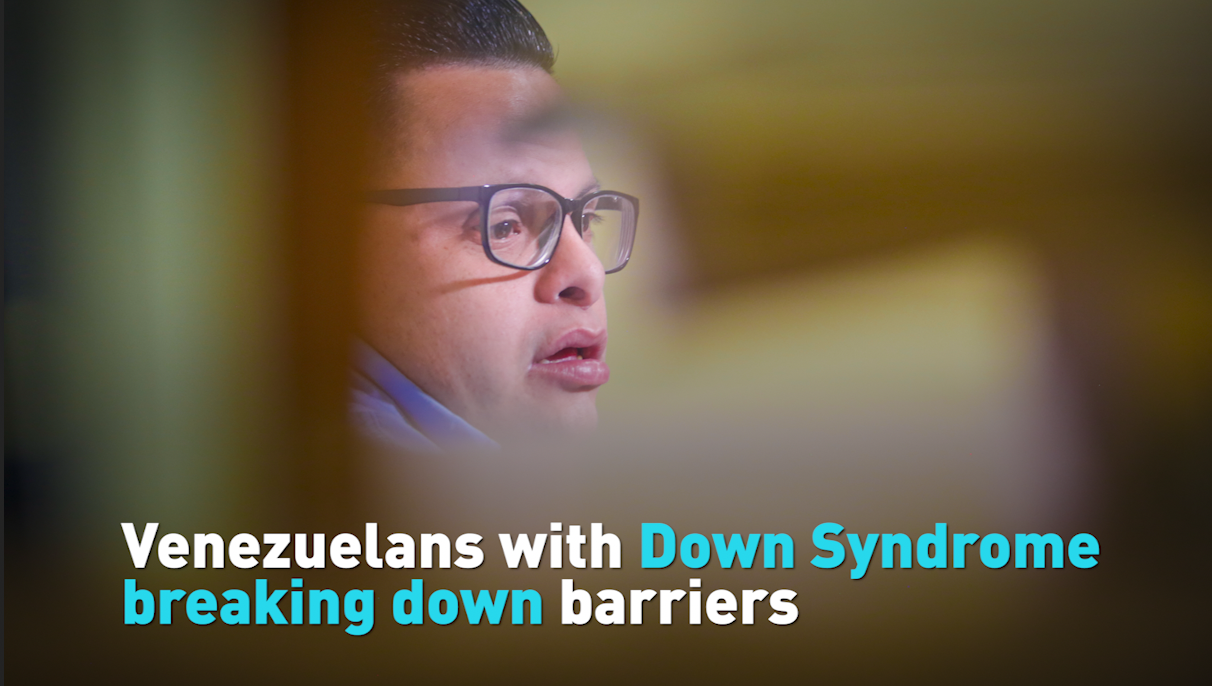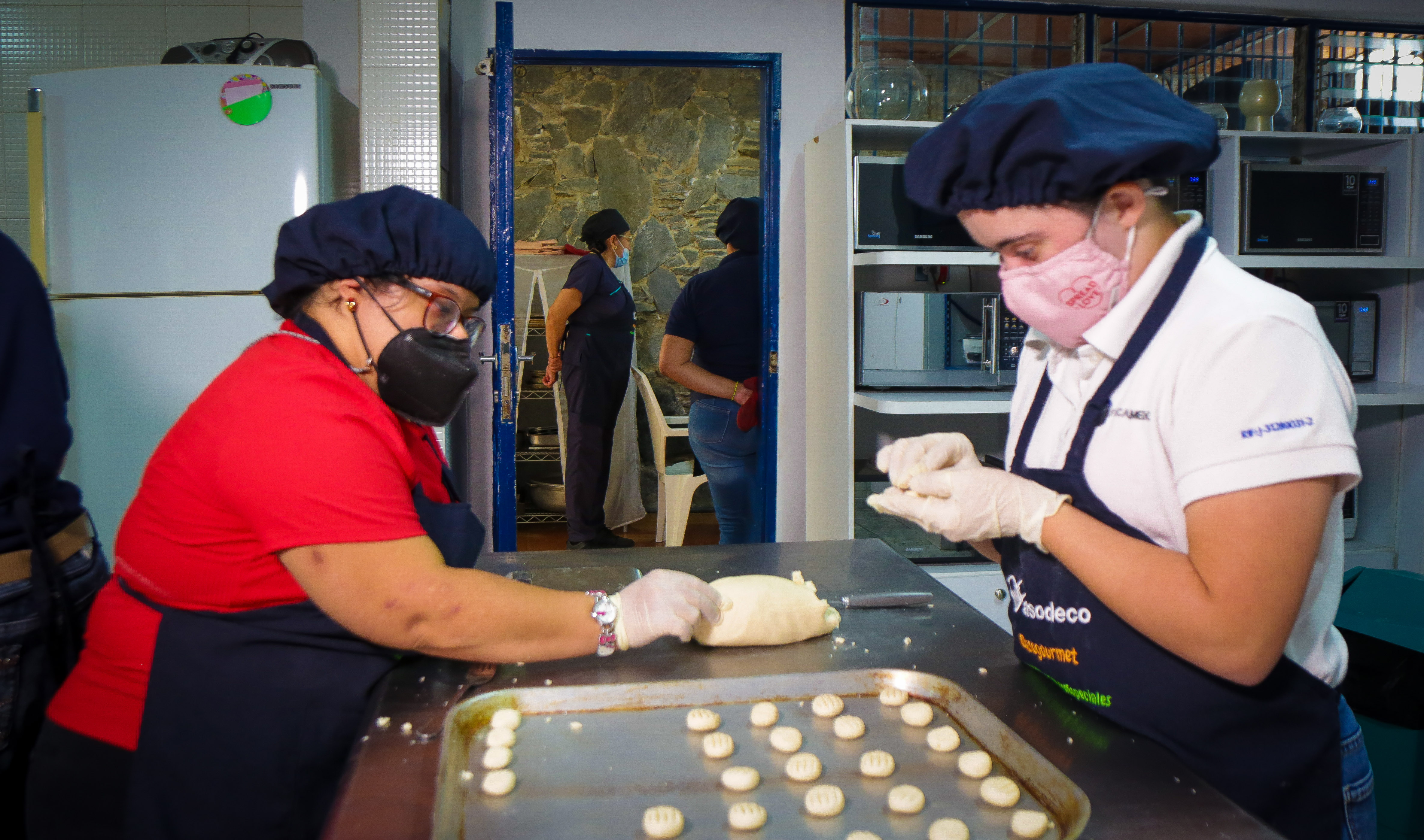01:29

Living with a disability is a challenge for most everyone. In Venezuela, residents are taking steps to help those in need.
It's not easy for people with disabilities to find jobs. But some are pulling out all the stops to join the workforce, to prove their strong work ethic and skills.
A remarkable Venezuelan is setting an example of resilience and has become a role model for his community.
38-year-old Alejandro Aranguren,who has Down Syndrome, works part-time, five days a week in a center for Venezuelan history.
Alejandro is always on time and one of the first to arrive at work. One of his first duties, as an administrative assistant, is to open the windows. He says he has many tasks, but he always aims to accomplish them with diligence and responsibility.
“I feel good here. I'm fine. My colleagues are great,” says Alejandro. “I always greet them when I arrive in the mornings, and then I go straight to my office."
For 18 years, Alejandro has worked in the corporate office of Venezuela's largest food company, Empresas Polar. His responsibilities have grown along the way, and his employer and co-workers consider him to be a valuable member of the team.
Alejandro's boss, María Fernanda Mijares, says she values his hard work.
“Alejandro is one of us,” explains Mijares. “The only difference between Alejandro and us may be his physical features but apart from that he's a fully functional person."
Alejandro entered the job market with the support of ASODECO, a Venezuelan nonprofit that helps young adults with disabilities successfully integrate into the workforce. About 400 people have been trained to work in the food industry andina variety of fields.
Once a month, Alejandro meets with ASODECO's employment specialists for a follow-up. It's not easy for someone with a disability to get a job in Venezuela - and experts say the coronaviruspandemic has made it even harder.

Click arrows to view gallery
Click arrows to view gallery
Taiture Peña works for ASODECO as an employment specialist. She's in charge of finding suitable jobs for people with cognitive disabilities according to their needs and skills.
“There are many people with disabilities that need to be included, and more and more people are arriving looking for an opportunity or employment,” says Peña. With the pandemic, a large number of our protégés became unemployed because some companies also closed."
In 2007, Venezuela passed a law requiring companies to have at least 5% of their payrolls dedicated to people with disabilities. But there are no official government figures on whether companies are following the rules.
Even with this legislation in place, it's not easy for people with disabilities to find a job. They face many barriers as they try to pursue a career, denying them an active social life with friends or colleagues.
In ASODECO's training facility, people with Down Syndrome and other cognitive disabilities learn basic skills they'll need to succeed in the workforce like cooking, sewing and various office activities.
Alejandro's hard work is paying off, and he knows what he'll do with the money he makes.
"My father is sick, he has high sugar levels, he is diabetic," he says. "With the work that I do here, I'm going to give my Mom the money for him to heal his foot."
Alejandro not only is leaving a big impression among his peers but also proving every day what a person with Down Syndrome can accomplish.
For more, check out our exclusive content on CGTN Now and subscribe to our weekly newsletter, The China Report.